"I'm Expected To Take Care Of Them When They Didn't Take Care Of Me": Gen Xers Are Having Complicated Feelings About Their Parents, And It's Sadly Relatable
BuzzFeed
5 min read
Generation X, born between 1965 and 1980, often gets left out of the generational conversation. But some Gen X creators are starting to change this, including Janet Martinez, MS LPC, a 48-year-old Texas-based counselor who's finding traction on TikTok after opening up about a trend she's seeing in her Gen X clients.
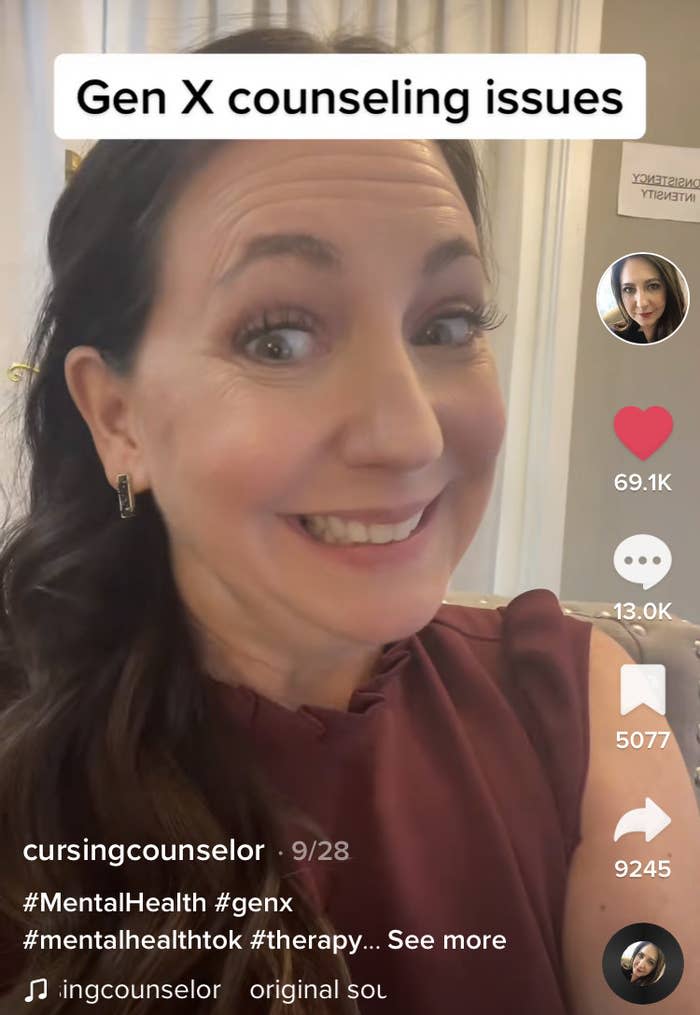
@cursingcounselor / Via tiktok.com
Martinez, who posts as @cursingcounselor, has been a counselor for more than 20 years, and she took to TikTok to start a conversation about how Gen X'ers are feeling as their parents get older and expect them to provide elder care.
In the video, she says, "I'm Generation X. In my generation, we were basically feral... We sort of raised ourselves. Our parents were very busy doing their own things, lots of working parents, especially newly working parents, and so we were latchkey kids, and we were on our own a lot."
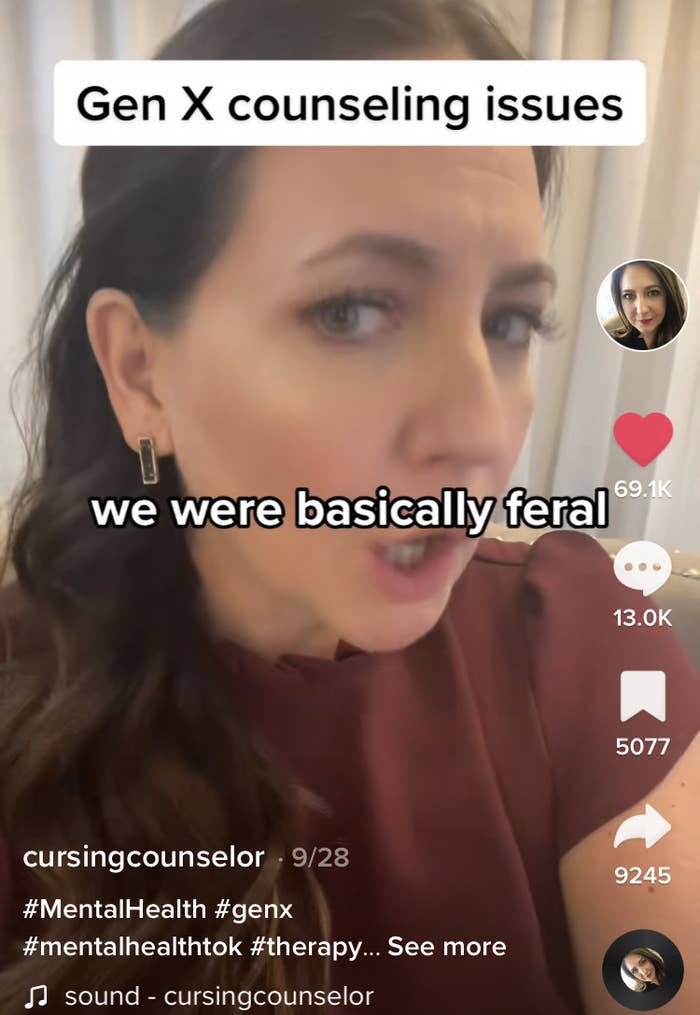
@cursingcounselor / Via tiktok.com
While Martinez acknowledges that sometimes being busy as a parent is unavoidable, she says that the emotional neglect many Gen Xers experienced is now taking a toll. "It was the emotional stuff, like that we didn't have a lot of people to talk to or our emotions were not seen as important. And so now this is what's coming up in counseling."
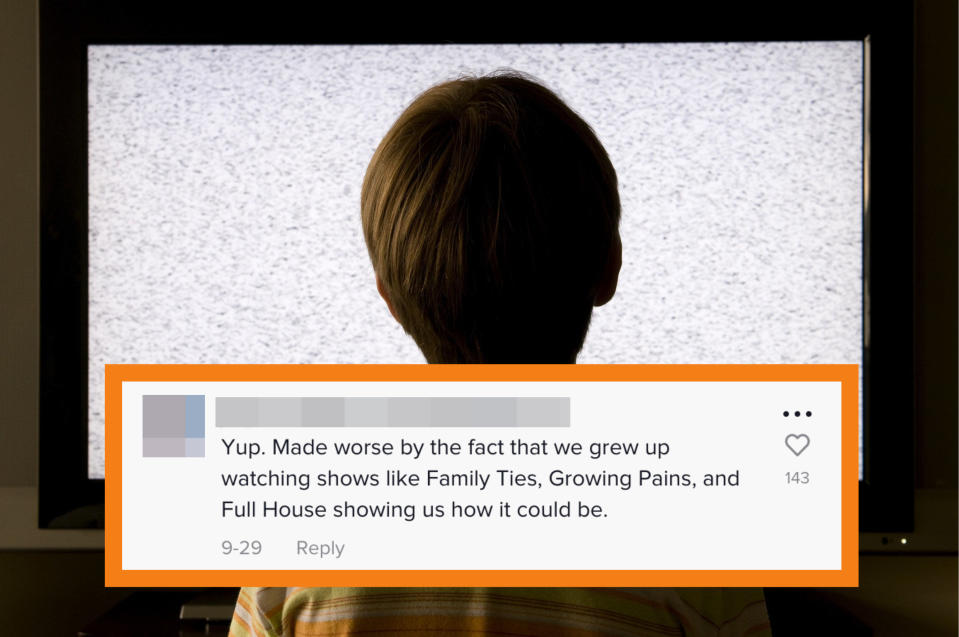
Brasil2 / Getty Images
"Now our parents are older and they need us, and many of us are struggling because we were not taken care of. But now we are expected to take care of [them], and that's creating a lot of issues."
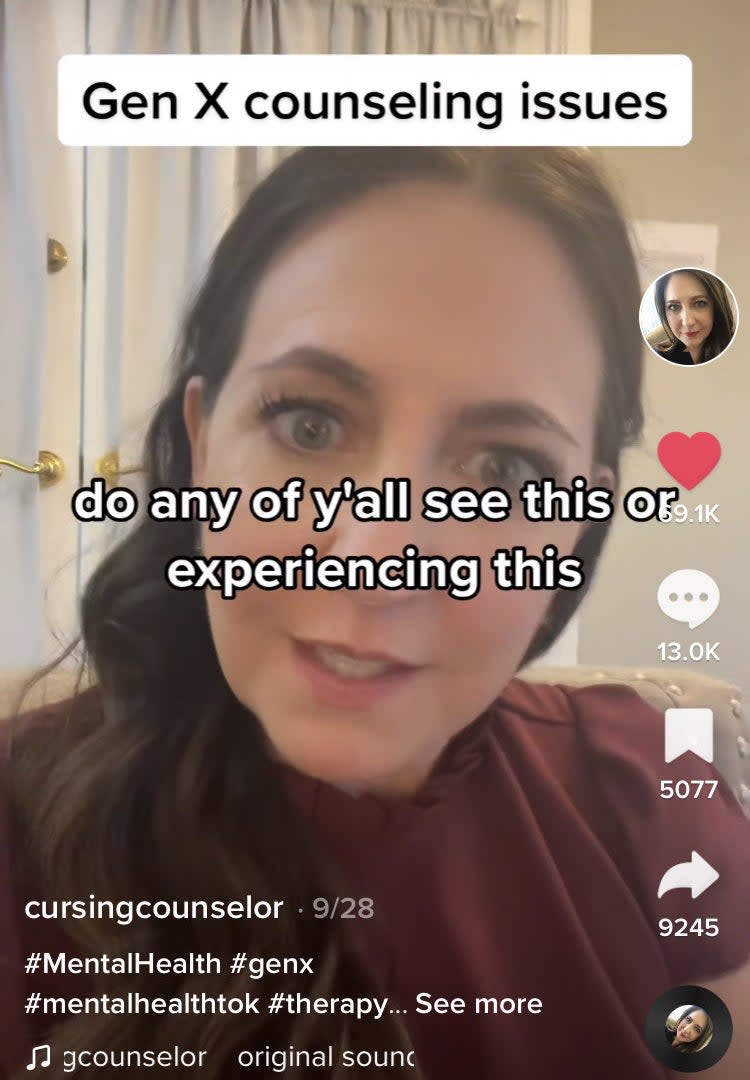
@cursingcounselor / Via tiktok.com
In the comments, many of Janet's fellow Gen X'ers and Gen X counselors are chiming in to say how much they can relate.
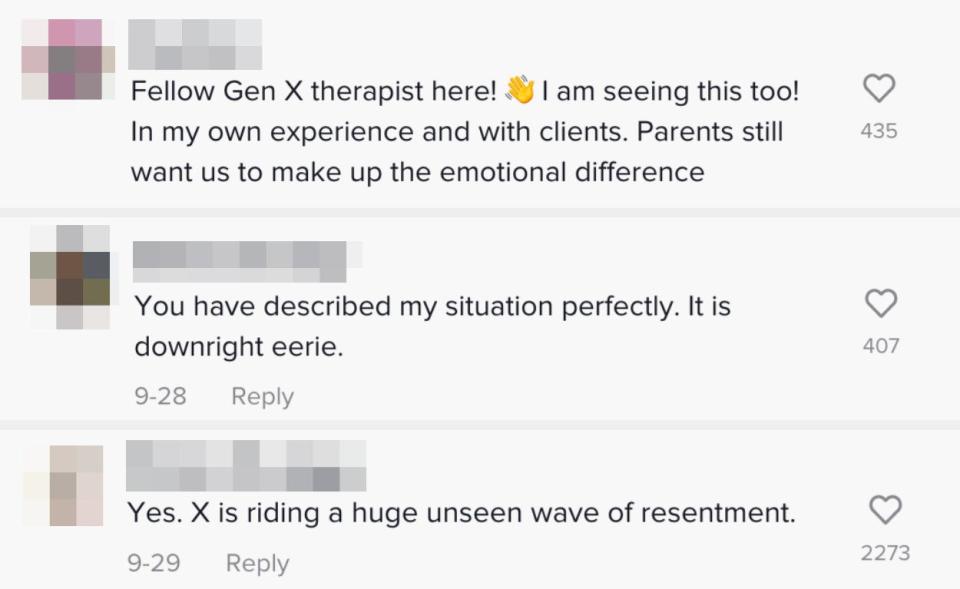
TikTok / Via tiktok.com
And others shared how they've been working through these feelings and trying to do better than their parents. A few people also dropped by to say that they had great parents and don't relate. Not every Gen Xer will resonate with this experience, but for those who do, it can bring up deep feelings.
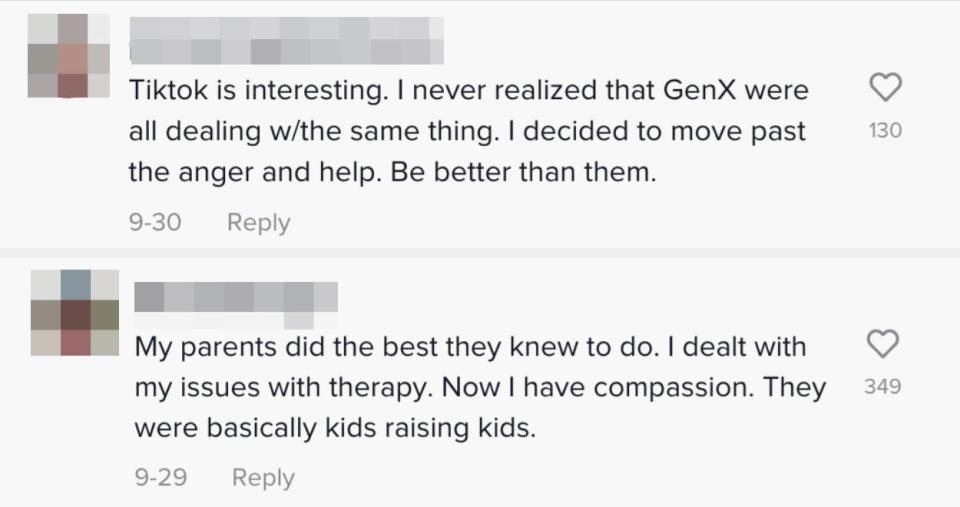
TikTok / Via tiktok.com
Martinez told BuzzFeed that she first noticed this trend last year. "We were still in the height of the pandemic, the country was divided, and older parents were asking their Gen X kids for more financial help, daily care, and emotional support. A client said, 'I am expected to take care of them when they did not take care of me' and then I began tracking how much this was coming up with other clients as well."
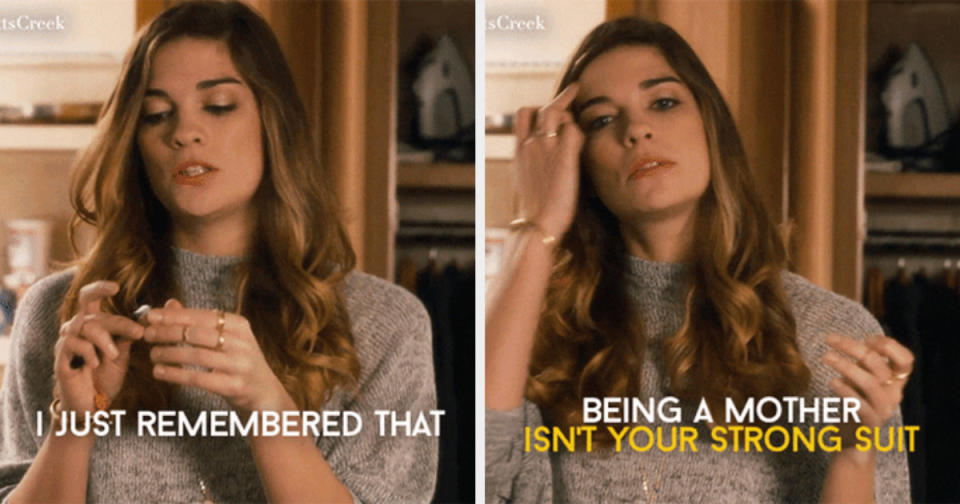
CBC / Via giphy.com
"This wasn’t everyone’s experience, but it was a lot of people’s experience. Also, corporal punishment was still the main way kids were disciplined and many were abused because their parents thought that was the best way to get kids in line. 'Gentle Parenting' was not heard of. Gen X are now parents themselves and have remarked to me that they used to give their parents excuses but now realize 'it wouldn’t have been that hard' to show up for us the way we show up for our kids."
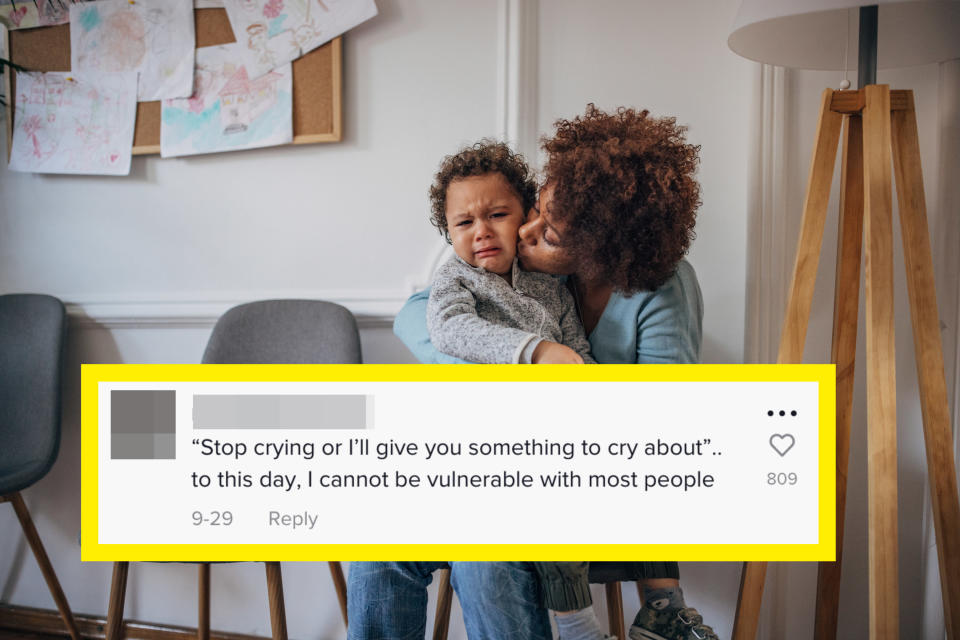
South_agency / Getty Images
She says that these clients tend to come to her because they are experiencing exhaustion, guilt, frustration, anger, and resentment. "I am exploring the resentment piece because Marc Brackett, an emotion researcher, has said the core emotion of resentment is jealousy. So there’s a jealousy of 'you got to do whatever you wanted and now you want me to stop everything and tend to you' — it is a type of jealousy. I think that, combined with inflation and the pandemic, has just created complicated emotions and feelings that have a lot of Gen Xers feeling guilty and ashamed and angry."
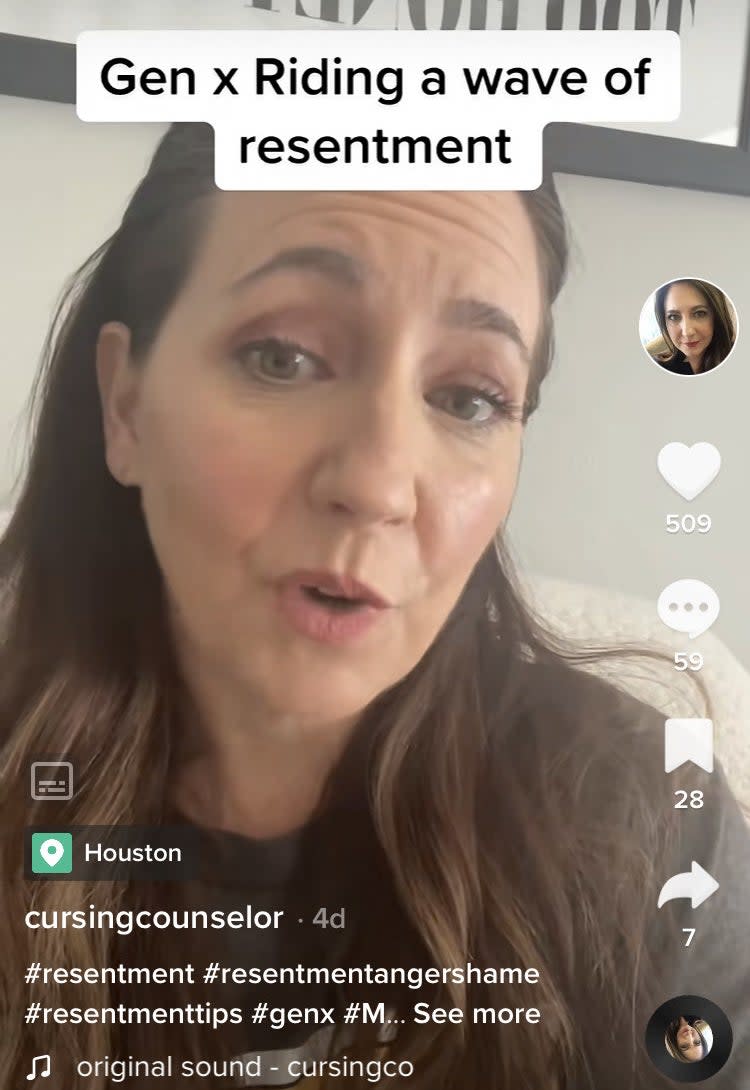
@cursingcounselor / Via tiktok.com
"The reactions or behaviors have varied in response to these feelings. Overall, most people 'suck it up' and take care of their parents out of feelings of duty and love. There is this idea of 'being the better person' and 'breaking the cycle.' Even with those folks, it is helpful for them to process these feelings in counseling so that when care is needed they are better equipped to handle the triggers that inevitably come."
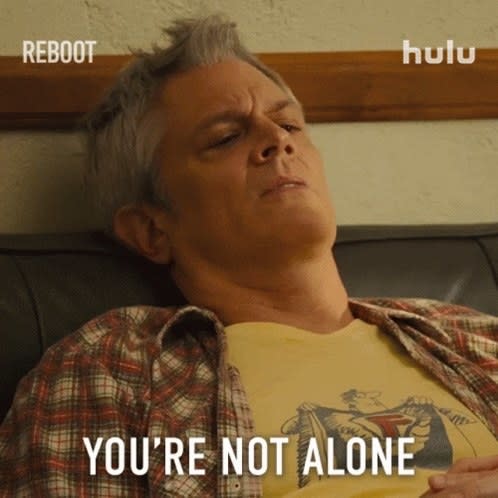
Hulu / Via giphy.com
But she says that for some people, limiting or cutting off parental contact may be a better option. "Some clients have been through so much past trauma that they have to develop boundaries to protect their mental health. The last group are some that have had to resort to no contact altogether. This is rare, but with narcissistic parents or those unwilling to accept boundaries, it is the only option."
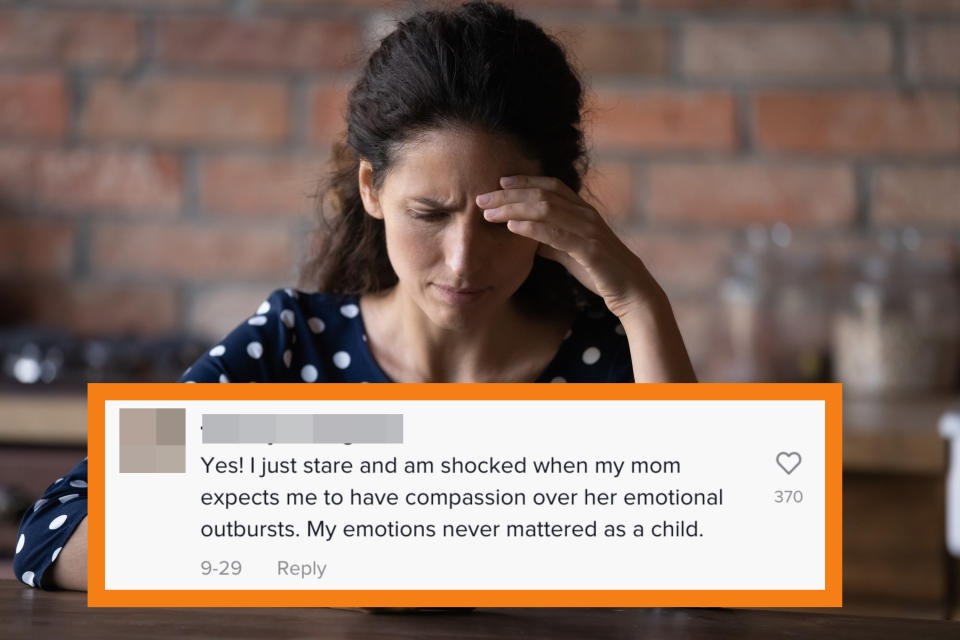
Fizkes / Getty Images/iStockphoto
Martinez also has a message for anyone who resonates with this trend. "It is okay to have those feelings and feel conflicted. Finding support in counseling is very helpful because you have a chance to talk to someone who doesn’t have a 'dog in the fight' and will help you approach the issue without judgment. If they experienced abuse and neglect or addiction, I highly recommend self help books like Codependent No More, Gifts of a Challenging Childhood, and Self-Compassion."
Hulu / Via giphy.com
Finally, she believes Gen Xers will get through this. "As a group, we are incredibly resilient and we persevere. We were feral children figuring things out. We played in ditches, rode bicycles outside all day, drank out of hoses, and never had knee pads or helmets. We survive. Interestingly enough though, we also are coming to understand more and more about our own mental health needs. We are learning by our own parenting where we needed to be seen and understood and weren’t. I guess what I’m trying to say is that through parenting our kids, we see the gaps we had as children and are coming to grips with how to move through those feelings."
Colombia Pictures / Via giphy.com